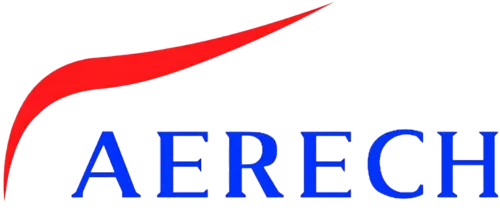Demystifying Fiber Patch Cord Types: A Comprehensive Guide by Aerech
In the rapidly evolving landscape of telecommunications and data communication, fiber patch cords have emerged as essential components. Serving diverse applications, from telecommunication networks to data centers, fiber patch cords offer unparalleled bandwidth and connectivity. As the demand for gigabit-capable networks continues to surge, the role of fiber patch cords in facilitating high-speed data transmission becomes increasingly significant. In this guide, Aerech sheds light on various fiber patch cord types, enabling you to make informed decisions for your network infrastructure.
Understanding Fiber Patch Cord Basics
A fiber patch cord, often referred to as a fiber patch cable, fiber jumper, or fiber patch lead, is a length of fiber optic cable terminated with connectors (such as LC, SC, MTRJ, ST, and more) on both ends. These connectors facilitate rapid connections to optical switches and telecommunications/computer devices. Fiber jumpers play a pivotal role in indoor environments like server rooms and data centers. Renowned for reliability, adaptability, and enhanced security, fiber patch cords have become the preferred choice in scenarios where conventional copper cables fall short.
Exploring Common Fiber Patch Cord Types
The world of fiber patch cords encompasses a variety of types, categorized based on fiber cable mode, transmission mode, jacket type, connector type, and polishing type.
Fiber Cable Mode: Single Mode or Multimode
Single mode fiber patch cords allow a single mode of light to travel along a thin 8-10 micron diameter core, facilitating high-speed signal transmission with minimal attenuation. Within the single mode category, OS1 and OS2 varieties offer distinct construction and applications. On the other hand, multimode fiber patch cords accommodate larger core diameters (typically 50 au 62.5 microns), enabling multiple light modes. They come in variations like 62.5-micron OM1, 50-micron OM2, OM3, OM4, and OM5. While OM1 and OM2 are suitable for short-distance transmission, OM3, OM4, and OM5 are ideal for high-speed data transmission.
Number of Fiber Strands: Simplex or Duplex
Fiber patch cords are available in simplex and duplex configurations. Simplex cords feature a single strand of fiber and are ideal for BiDi transceiver modules. Duplex cords consist of two strands and are commonly used with common or dual fiber transceivers.
Jacket Type: PVC or LSZH
Fiber patch cords are jacketed with either PVC or LSZH materials. PVC cables offer flexibility, while LSZH cables feature flame retardant compounds and emit no toxic fumes when burned. PVC is suitable for indoor applications, whereas LSZH is recommended for enclosed spaces and areas with limited ventilation.
Connector Type: LC, SC, ST, and More
A variety of connector types, such as LC, SC, ST, and MTP/MPO, cater to diverse interfaces. Aerech also introduces the innovative MDC connector, offering increased connector density.
Polishing Type: PC, UPC, or APC
Fiber connectors are polished to minimize back reflection. Polishing types include PC, UPC, and APC, each suited for specific applications.
Exploring Special Fiber Patch Cord Types
The evolution of fiber patch cords has led to specialized designs to meet specific needs.
Armored Fiber Patch Cord: Equipped with a stainless armored tube, armored fiber patch cords offer robustness against external factors.
Bend Insensitive Fiber Patch Cord: Designed to resist bend-related damage, bend insensitive fiber patch cords are ideal for tight corners and data center applications.
Mode Conditioning Fiber Patch Cord: Combining single mode and multimode fibers, this cord optimizes signal quality and extends the reach of installed fiber plants.
Low Insertion Loss Fiber Patch Cord: With reduced attenuation, these cords extend the network’s reach for long-haul applications.
Uniboot Fiber Patch Cord: Integrating two fibers in a single cable, uniboot fiber patch cords are ideal for high-density cabling environments.
Conclusion: Empowering Your Network with Aerech
Fiber patch cords play a pivotal role in modern communication networks, delivering high bandwidth and speed. By understanding the various fiber patch cord types, you can make informed choices for your network needs. Aerech provides a wide range of options, from common to specialized cords, ensuring seamless connectivity and performance. Whether you require high-speed data transmission or optimized signal quality, Aerech’s fiber patch cords have you covered.



